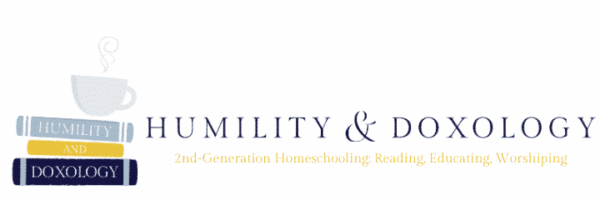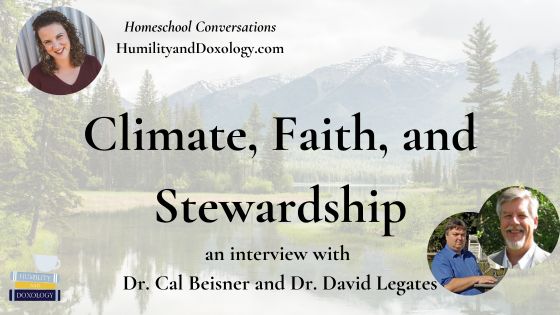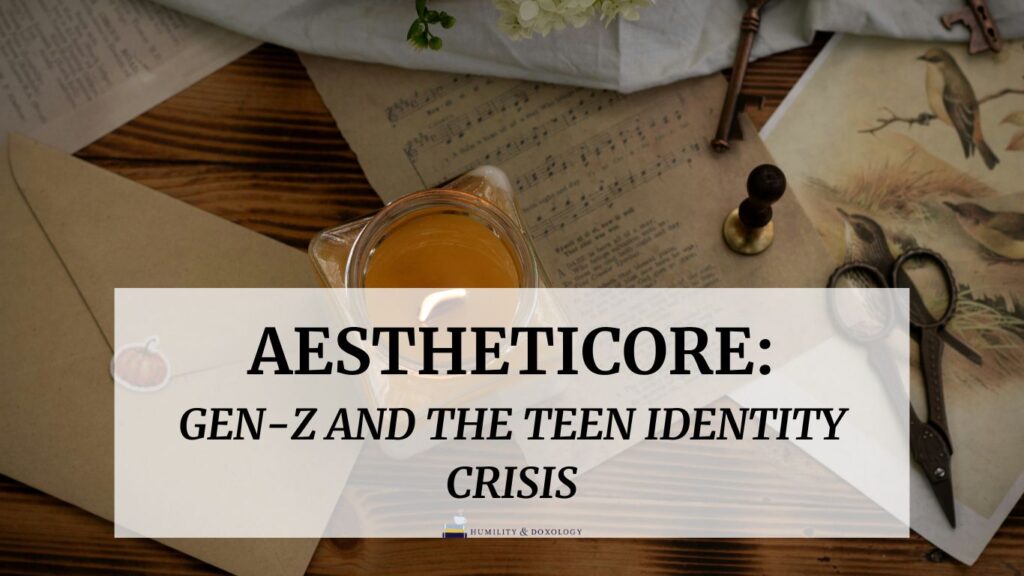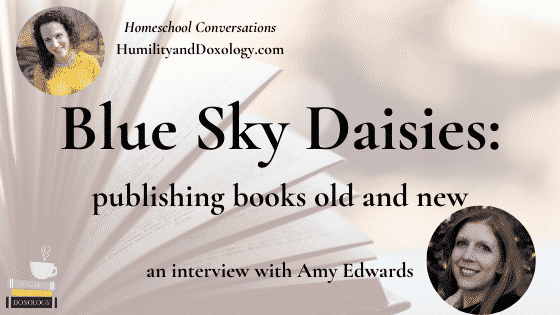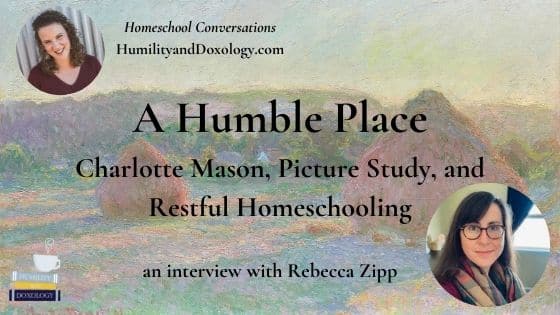I recently had the privilege of speaking with Dr. Cal Beisner and Dr. David Legates, co-authors of Climate and Energy: The Case for Realism. Together, we explored the intersection of climate science, biblical stewardship, and how Christian families can think faithfully and rationally about these often controversial topics.
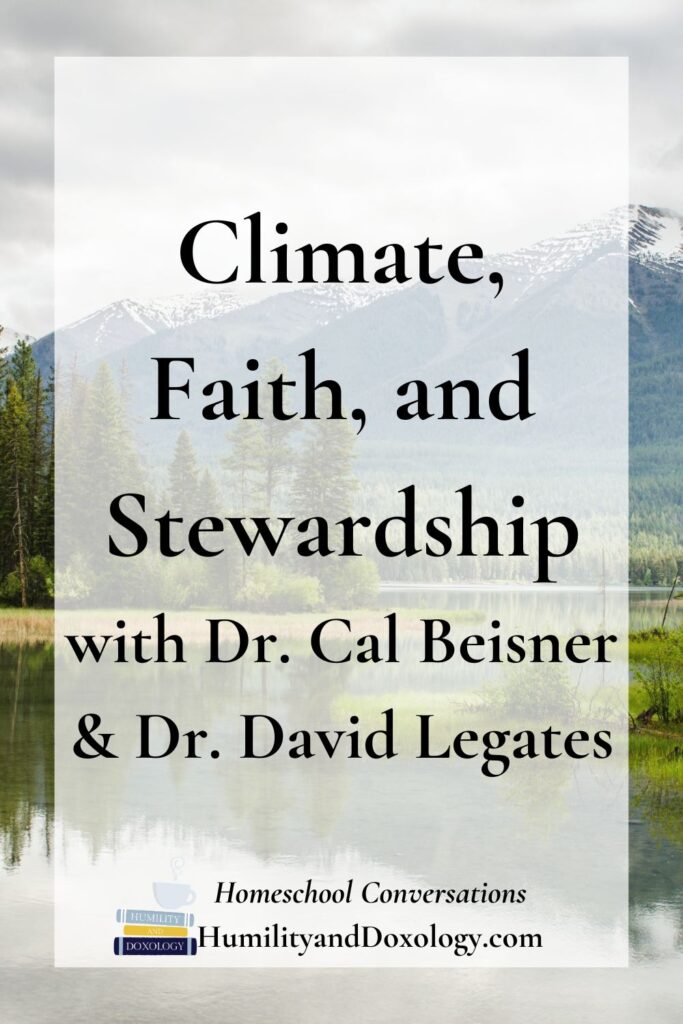
{This post contains paid links. Please see disclaimer.}
- Backgrounds in Climate and Stewardship
- A Biblical Worldview and the Birth of Science
- Realism vs. Alarmism in Climate and Energy
- Why We Rarely Hear About Climate Realism
- Why This Matters for Christians and Homeschoolers
- Practical Wisdom for Stewardship
- Resources for Families
- Key Takeaways
- You May Also Enjoy:
- Check out all the other interviews in my Homeschool Conversations series!

Backgrounds in Climate and Stewardship
Dr. Cal Beisner, a theologian and philosopher, shared how his interdisciplinary studies in economics, environment, and development eventually led him into climate science from a layman’s perspective. As the founder of the Cornwall Alliance for the Stewardship of Creation, he now leads a network of nearly 70 evangelical scholars dedicated to educating the public on biblical earth stewardship, economic development for the poor, and the gospel of Christ.
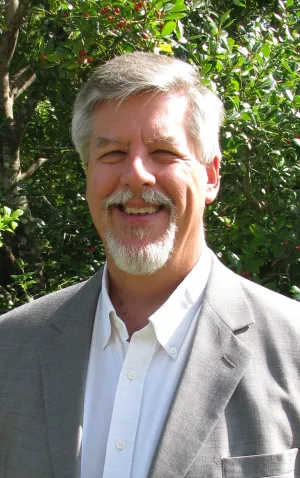
Dr. David Legates, a climatologist, described his lifelong pursuit of weather and climate studies, from earning one of the earliest PhDs in climatology to serving in leadership roles at the University of Delaware and the U.S. Global Change Program. Today, he directs research for the Cornwall Alliance.
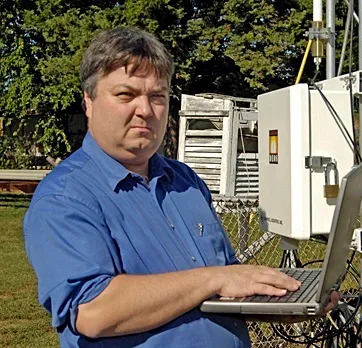
A Biblical Worldview and the Birth of Science
Dr. Legates highlighted how climate alarmism often abandons truth in favor of manipulation and fear. He warned against the dishonesty of exaggerated claims about extreme weather and carbon dioxide.
Dr. Beisner emphasized that the scientific method itself grew out of a Christian worldview, rooted in testing, reasoning, and truth-seeking. He pointed to how medieval Europe, steeped in Christian faith, gave rise to universities and the systematic pursuit of knowledge. For him, science flourishes when grounded in biblical truth.
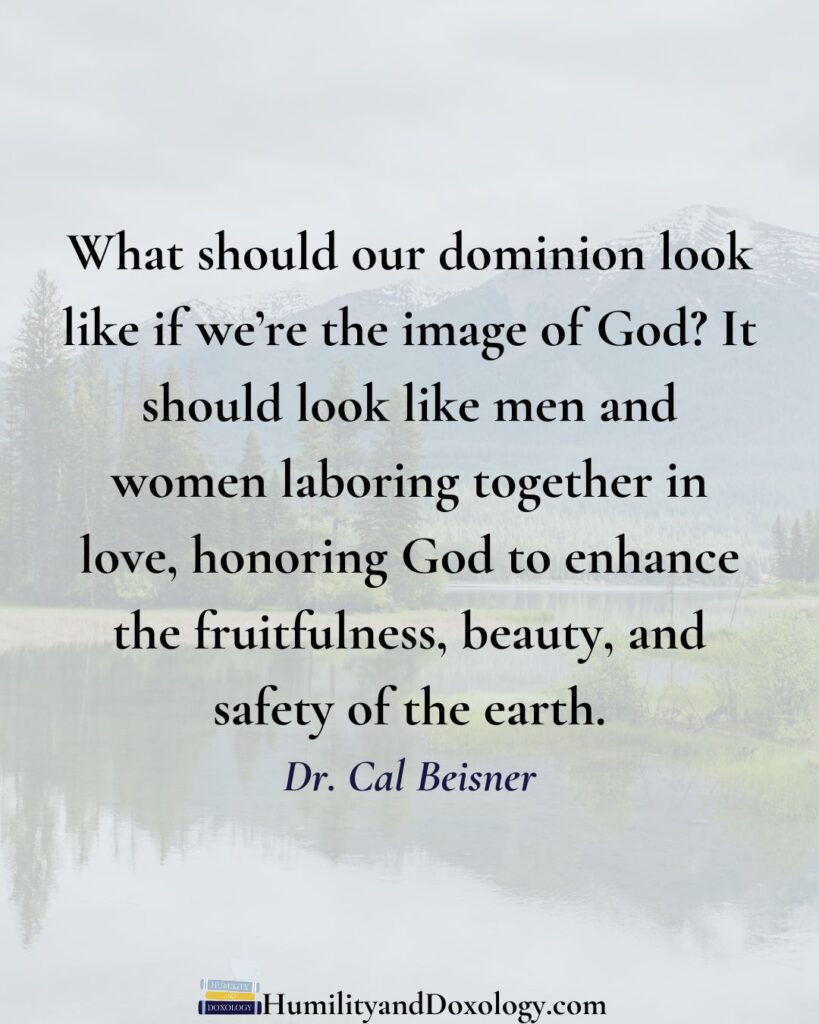
Realism vs. Alarmism in Climate and Energy
Dr. Beisner outlined the spectrum of climate perspectives, from alarmism on one end to denial on the other. He argued for realism: acknowledging that human activity contributes to some warming, but also recognizing the overwhelming benefits of energy use and the resilience of the earth’s climate system. From increased agricultural productivity to economic growth, the benefits of carbon dioxide and fossil fuel energy far outweigh potential harms.
Why We Rarely Hear About Climate Realism
Dr. Legates attributed the absence of balanced perspectives in media and journals to bias. He explained how modern narratives often drift into nature-worship, viewing humanity as a blight rather than as image-bearers of God. Dr. Beisner added that biblical dominion means enhancing the fruitfulness, beauty, and safety of the earth, reflecting God’s character in creation stewardship.
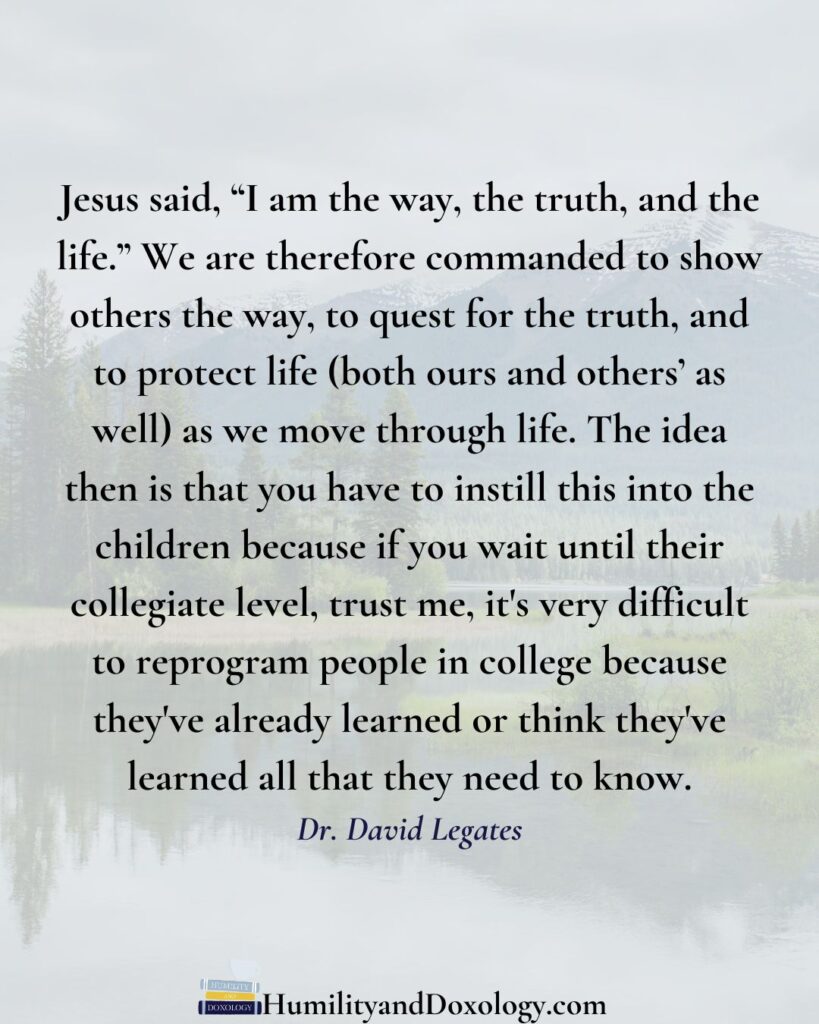
Why This Matters for Christians and Homeschoolers
Both guests stressed the urgency of this conversation for families, particularly homeschoolers. Dr. Beisner pointed to the rise of “eco-anxiety,” where fear of climate catastrophe has discouraged many young adults from having children. He urged Christians to reject false fears and to recognize God’s sovereignty over creation. Dr. Legates emphasized the importance of teaching children biblical truth early, before cultural narratives take hold.
Practical Wisdom for Stewardship
Drawing from his own homeschooling experience with seven children, Dr. Beisner encouraged families to teach wise stewardship rooted in Proverbs and common sense. From avoiding waste to understanding how climate systems actually work, he reminded parents that creation stewardship is an act of loving God and neighbor.
Resources for Families
For those feeling overwhelmed by academic treatments of climate science, the Cornwall Alliance offers accessible resources:
- Climate and Energy: The Case for Realism (with chapter summaries for lay readers)
- Dozens of shorter booklets and pamphlets
- The Created To Reign podcast
- A YouTube channel with videos, live streams, and documentaries
- An upcoming online climate science course designed for high school students
Families can also reach out directly to the Cornwall Alliance at stewards@cornwallalliance.org for help and resources.
Listeners can explore more at CornwallAlliance.org, or connect with the CO2 Coalition at co2coalition.org for further resources on the benefits of carbon dioxide.
Key Takeaways
- Christianity and Science – A biblical worldview gave rise to science, emphasizing truth, testing, and reason rather than fear-driven narratives.
- Climate Perspectives – Alarmism and denial are both extremes; climate realism acknowledges human impact while recognizing the overwhelming benefits of energy use.
- Media Bias – Mainstream media and many journals promote disaster scenarios due to ideological bias and nature-worship worldviews.
- Dominion and Stewardship – Biblical dominion reflects God’s image by enhancing the fruitfulness, beauty, and safety of the earth, not abusing it.
- Eco-Anxiety – Many young people suffer from climate fears so severe they avoid having children, highlighting the urgent need for truthful teaching.
- Homeschool Relevance – Christian families must train children early in truth, as cultural narratives about climate often distort reality.
- Practical Wisdom – Stewardship includes common-sense habits: don’t waste, use resources wisely, and understand how the world really works.
- Climate Benefits – Data shows warming reduces deadly cold snaps, improves crop yields, and supports human flourishing, contrary to alarmist claims.
- Resources for Families – The Cornwall Alliance offers accessible books, podcasts, videos, and courses to help parents teach climate and stewardship.
- Faith and Civilization – Christianity transformed Western culture, and rejecting it risks a return to destructive pagan values.
You May Also Enjoy:
- Natural Philosophy: Recovering a Natural Science and Christian Pedagogy (with Ravi Jain)
- Homeschool Science for Every Student with Dr. Jay Wile
- How to Seamlessly Blend Science and History in Your Homeschool
- Nature Study in the Christian Homeschool
- Textbook-Free Science: all the resources you’ll need to learn about OUTER SPACE in your homeschool!
- High School Science at Home (with Dr. Kristin Moon)
- Exploring Homeschool Science with Wonder and Hands-On Fun: a video interview with Dr. Kristin Moon
- My First Science Experiment: a fun, simple, hands-on project you can do at home to fascinate preschoolers and kindergartners with the scientific method!
- He clasps the crag with crooked hands: Simple Science Unit Study of Eagles and Other Birds of Prey, inspired by Tennyson’s “The Eagle”
- Textbook-Free Science: all the resources you’ll need to learn about WEATHER in your homeschool!
- Bones of the Human Body Song
- Birds: 50+ resources for your elementary and early-middle school science and nature studies
Check out all the other interviews in my Homeschool Conversations series!
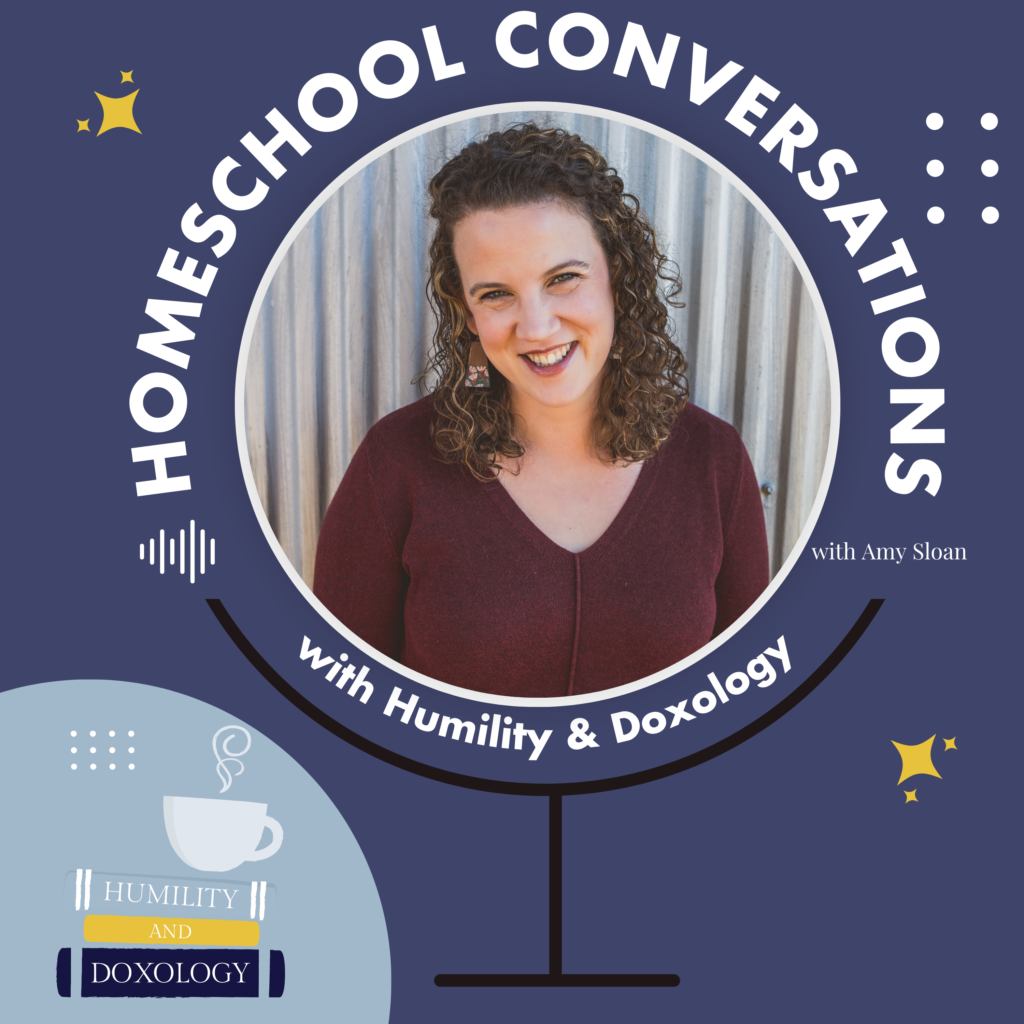
Amy Sloan: Hello friends. Today I am delighted to be joined by two guests. We have today Dr. Calvin Beisner, who is the founder and president of the Cornwall Alliance for the Stewardship of Creation. Also joining us today is Dr. David Legate, who is the director of research for the Cornwall Alliance and a retired professor of climatology from the University of Delaware. They are both co-authors of Climate and Energy, The Case for Realism. So here at the beginning, I would love to just hear what background you bring to the subjects of climate change, climate, energy policy. Dr. Beisner, why don’t you get us started?
Dr. Cal Beisner: Okay, that’s good because mine will be shorter. I’m a theologian, philosopher, interdisciplinary scholar who somehow or other got heavily into economics and then the economics of environment and the economics of development, how whole nations rise and stay out of poverty. And those things led me into looking at the economics and then later the science of environmental stewardship and environmental policy, which led eventually to my doing an enormous amount of reading on the science at a layman’s level of climate change. Far outweighs the reading I ever did for my PhD, but did that. But I am at a well-read layman’s level on these issues, rather than like David, a true expert. I think David was one of the first people in the world to get a PhD in climatology and he knows the stuff. But eventually through a variety of different things in terms of my teaching career at Covenant College and Knox Theological Seminary and participating in various gatherings to discuss the ethics and economics of environmental stewardship, that all just led eventually to starting the Cornwall Alliance for the Stewardship of Creation, which is a network of just under 70 evangelical scholars, about a third of them natural scientists, including some of the world’s top climate scientists, including David there. And about a third are economists, specializing most of them in either development or environment. And about a third, theologians, philosophers, and ministry leaders. Our mission is to educate the public and policymakers on biblical earth stewardship, economic development for the poor, and the gospel of Christ all tied together.
Amy Sloan: That’s fascinating. And I’m sure this will come out later, just the connections between the climate and economics and all these other things, because I think it’s a good reminder, none of these topics exist in isolation, right? So they impact one another. Well, Dr. Legates, tell us a little bit about your background.
Dr. David Legates: Well, growing up, I always wanted to be a meteorologist. And I learned that in the 1980s, that the future was going to be climatology and not weather forecasting. And the University of Delaware had a program in climatology. So I was there and I got in on the ground floor of it, got my PhD from the University of Delaware, went to faculty at the University of Oklahoma, then to LSU, then back to the University of Delaware. I was Delaware State climatologist in the first Trump administration. I served briefly as the Assistant Secretary of Commerce for Environmental Observation and Prediction. I was also the Executive Director of the U.S. Global Change Program. And now I’m pleased to say that I’m working with the Cornwall Alliance, which has probably been the more enjoyable job than any of those I’ve just mentioned.
Amy Sloan: Well, as you think, Dr. Legates, about sort of the big picture of a biblical worldview giving rise to science and how current modern perspectives often deviate from true science. How would you kind of explain that or express that?
Dr. David Legates: Well, let me start with the how do current perspectives deviate from true science, as you mentioned, and I’ll leave the other question for Cal. Essentially, I mean, being involved in climate change, my concern has been that, you know, and as a Christian, that we always are called to hold to what is true. And what bothers me is back in 1989, there was a famous climatologist who went into Discover magazine. It was a big article. And he said, we have to offer up scary scenarios. We have to make simplified statements and make no mention of doubts we might have. You got to remember, this is at the beginning of all of this. So the idea for to do all that is because we need loads of media coverage. And my concern was that, you know, as he said, what we I hope that means being honest and also being effective. But the issue is not necessarily being both, but we have to be honest first and foremost. And that’s been the issue with climate change. My concern is that a lot of what I see in climate change is we say we’ve got more hurricanes coming, more intense hurricanes, more hurricane landfalls. We’ve got more tornadoes. We’ve got more intense tornadoes, more floods, more droughts. And it’s all due to carbon dioxide. And everybody who looks at the data should realize that’s not true. That we’ve been telling a lie all along. And my concern has been recently as to why have we been lying to the public. And I’m getting very concerned over that.
Amy Sloan: Yeah. Just not a true focus on what actually is true or real, but more focusing on impact and manipulation. And as long as we can get something done, it doesn’t really matter if it’s true or not. Dr. Beisner, how would you address the sort of issue of the biblical worldview giving rise to science and then any other thoughts you might have?
Dr. Cal Beisner: Okay. You know, if there is any one Bible verse that has been sort of my life verse, it would be, not typically claimed by many people, 1 Thessalonians 5.21. Test all things, hold fast what is good. And I like to tell people that’s the basis of scientific method. That really is it. And many, many people think, well, Christian faith and science are somehow at odds with each other. It’s quite the opposite. Christian faith is all about rational belief, reasoned belief based on solid logic, solid evidence, things like that. I mean, you see that in the prelude to Luke’s gospel in which he tells Theophilus to whom he was writing all about the efforts he went through to interview eyewitnesses to make sure that all that he said was true. And then at the beginning of the book of Acts, he says that Jesus showed himself to the disciples risen from the dead by, quote, many infallible proofs, unquote. And we’re told to be ready at all times to give to everyone an answer, a reason for the faith that lies within us in 1 Peter 3.15. So that’s integral to the Christian faith. And historians of science, you know, back in the 19th century, some of them were claiming that Christianity and science were at odds. Those claims have been utterly blown to pieces. And historians of science now recognize that as Rodney Stark, historian, put it in one of his books, science as a programmatic technique of looking at the world around you, coming up with a hypothesis, making predictions of what you should see if the hypothesis is true, and then observing carefully and comparing the observations with the hypothesis and falsifying or saying, OK, so far I haven’t falsified. We can move ahead with this. He says that only began as a systematic way of thinking and observing the world at one time, in one place in all of history. That was medieval Europe, saturated by Christian worldview and by the startup of universities under the church of that period in the 10th, 11th, 12th centuries. That’s what brought this about. And we see it reflected in a wonderful summary that Nobel Prize winning physicist Richard Feynman is famous for. He called it the key to science. If we want to understand how something in the world works, first we guess, then we make predictions of what we should see if our guess is true, and then we compare what we actually observe, whether it’s in the laboratory or out in the natural world. We compare the observations with the predictions. If the observations contradict the predictions, then the guess is wrong, period. Doesn’t matter how beautiful it is or how smart you are, I would add, or how many people agree with you, if the observations contradict the predictions, the guess is wrong. That’s the key to science. Well, what David just pointed out is that, for example, those in the sort of climate alarmist movement guess, they make predictions, they guess that the world’s climate system works in such a way that if you add some CO2 to it, you’ll get warming a little bit, but that will be multiplied by response factors in other parts of the climate system, particularly H2O, water vapor, so as to create a great deal of warming. And then they think, ah, and that great deal of warming will cause more frequent and more severe extreme weather events, hurricanes, floods, droughts, tornadoes, thunderstorms, heat waves, cold snaps, et cetera, right? Well, that’s the guess, and then we do the observations. Now, David is a data specialist. He collects these data from all over the world, all the time, and he will tell you, as will anybody else who looks at those data, there is zero upward trend in the frequency or intensity of any extreme weather events over the period of supposedly human-induced global warming. So the guess is wrong, and therefore you’ve got to go back to the drawing board.
Amy Sloan: That is fascinating. And again, going back to this looking at truth, not just what we wish to be true, making the connections and observations, and seeing how a biblical worldview does line up, in fact, and encouraged the scientific development in the Middle Ages and on in particular. I’ll make a note for anyone who’s listening, I’ll put in the show notes a link to two other interviews I’ve done, one with Ravi Jain and one with Dr. Jay Wile, both on the topics of science and natural philosophy and seeing the connection with biblical worldview. So make sure you check those out, too, if you’re interested in more science fun. But Dr. Beisner, what other views, you kind of hinted at them a little bit, you called it an alarmist view or kind of a cause and effect that is assumed. Are there other views of climate and energy that you would contrast with realism and why?
Dr. Cal Beisner: Yeah, well, we just looked at one end of the spectrum. That’s the alarmist view, where basically the world is going to hell in a handbasket because of human emissions of CO2 from burning fossil fuels. The other one is, eh, it’s all a myth. There’s no such thing as human-induced global warming, human-induced climate change. There are absolutely zero negative effects if there is any warming going on, etc. Everything is purely natural. That’s at the opposite end of the spectrum, and I think that that is mistaken as well. I think the reality is that human emission of so-called greenhouse gases, which absorb heat that is reflecting from the surface of the earth back out towards space and send some of it back down to the surface of the earth, not all, actually a very small part of it, but human emission of greenhouse gases does make the surface of the earth warmer than it otherwise would be, all other things being equal, right? The problem is the climate system is an extremely complex system, probably more complex than anything we’ve ever studied with the exception of DNA and the human brain, and that complex system has all sorts of positive and negative feedback factors on the initial warming from that. But at any rate, yeah, a little human-induced global warming is a reality. The harms of it probably, I think, are outweighed by the benefits of the warming itself, and then the benefits to plant growth of that added CO2 in the atmosphere far outweigh any of the harms from the warming. And then, in addition, the benefits from all the energy that we get from the coal, oil, and natural gas that we burn, which puts out that carbon dioxide, far outweigh even the benefits to plant growth from that added CO2 in the atmosphere. So, if we’re asking the question, is the whole process of generating energy, using energy, adding CO2 to the atmosphere, and thus affecting both plant growth, and therefore crop harvests, right, and global temperature, is that whole process overall net negative, net harmful to mankind, or is it net beneficial? The answer is it is overwhelmingly net beneficial, and it makes no sense whatsoever to try to stop that warming or to slow it by reducing our use of fossil fuels, because that slows, stops, or reverses the conquest of poverty in especially poor countries around the world, and poverty is a much greater threat to human health and well-being and life expectancy than anything related to weather and climate.
Amy Sloan: Well, if what you’re saying is true, why don’t we learn about this perspective from science journals, mainstream media? Dr. Legates, help me figure this out. Help me understand.
Dr. David Legates: In a simple word, bias. I used to like to say that what was happening is that media tended to gravitate towards disaster scenarios, because of the old phrase, if it bleeds, it leads. But I don’t buy that anymore. I don’t think that’s the only reason they do it. I think they are well connected in with the climate extremist group that says, you know, we’re destroying our planet. They’ve gotten away from the biblical worldview and more towards a worship nature type of worldview, where we have to protect nature at all costs, and humans somehow are anathema to protecting nature, even though we’re supposedly part of it. And that’s why we get into decreasing the number of humans, keeping humans poor, keeping them technologically disadvantaged, because that enhances nature. And if you start to look at the Bible, I mean, immediately you find that the whole biblical narrative is how God wants to interact with humans, not how he wants to interact with the rest of nature. And I mean, if you go to Matthew 22, it says, you know, the whole law and the prophets can be summarized by two great commandments. Put God first and trust and put others as your equals. It doesn’t say anywhere in there about caring for nature. Now, it doesn’t mean we can just destroy nature at will, because nature is there to accomplish those two commandments. The first commandment being put God first, and then using nature and the resources God has given us to bring others up to speed when they aren’t, when they’re lagging behind. But I think the media misses that. And I think with their nature worship type of worldview, that somehow therefore humans are evil, humans are destroying the planet. And therefore we have to have a bias that says that we have to be biased against humans. That’s what I saw at the university. I mean, being at a university, you see all this stuff firsthand, but you see it pervading the media. You see it pervading science journals even. Everywhere comes out a discussion that we have to protect nature and that is against what God really wants.
Amy Sloan: It’s so interesting because it’s not just a neutrality, a neutral position of like humans are neutral, you know, but it’s actually seeing them as a negative impact on the natural world. Whereas for a Christian, we see we’re image bearers of God, right? Christ himself came and was incarnate as a man, which gives value and perspective. But Dr. Beisner, were you going to say something there?
Dr. Cal Beisner: Yeah, I was just going to add to what David was saying. You know, what this doesn’t mean is that we are free to just go ahead and abuse and slaughter all of nature and turn the world into Walmart parking lots. I mean, that’s not the point. You just mentioned the fact that we’re made in God’s image and that is the crucial point in all of this. We get that from Genesis chapter one, where after having made the heavens and the earth and the seas and the skies and the land and sea creatures and sky creatures and land creatures, finally God makes man and woman in his own image and he blesses them, verse 28, and says to them, be fruitful and multiply and fill the earth and subdue it and have dominion over the fish of the sea and the birds of the air and everything that moves on the face of the earth. Well, what’s that dominion supposed to look like? It should be characterized by the fact that we’re made in God’s image. So it should reflect God’s dominion. Well, what did he do? He started with nothing and made everything. So the better we get at making more and more out of less and less, the better we reflect God’s image. He started with darkness and made light. The more we learn truth, light in scripture about the world around us, the better we reflect the image of God. He started with chaos and made order. So the more we make greater order out of lesser order, the more we reflect God. He started with no life and made life and then great abundant for varieties of life and told every one of those to be fruitful and multiply and fill its own niche in the world. So what should our dominion look like if we’re image of God? It should look like men and women laboring together in love, honoring God to enhance the fruitfulness and the beauty and the safety of the earth to the glory of God and the benefit of our neighbors so that we are addressing, as David made reference to, the two great commandments, to love God and to love neighbor. And I think when we put it that way, all of a sudden, even non-Christian environmentalists will say, oh really, you want to enhance the fruitfulness and the beauty and the safety of the earth? Yeah, we’re all for that. Good. Well, great. If you really want to understand how to do that, you need to embrace the Christian worldview and the Christian faith. You need to be reconciled to God so that you think his thoughts after him and use his world the way he wants you to.
Dr. David Legates: Al and I once got into a discussion with a Christian climatologist and she argued that God’s second greatest gift to mankind is all of creation. And that’s why we need to protect creation. And upon my reading of the Bible, I don’t see it that way. I see that God’s second greatest gift came after he had created everything. He presented it to Adam and Adam says, it’s great. It’s good. God proclaimed it to be good, but it wasn’t enough. And what did God create? A woman created another person. So particularly in keeping with Matthew 22, the second greatest gift are other people. And that’s why the second commandment, second great commandment is focused on taking care of other people and not taking care of nature per se.
Amy Sloan: I think that’s such an important point. And I appreciate you both bringing up that perspective that we’re not just, you know, we would never want to communicate, ah, you know, we’re not alarmists. Therefore we can do whatever we want with this gift that God has given us, which would be, of course, the opposite of stewardship and the opposite of loving God and loving our neighbor, but making that connection between the stewardship of creation and actually the benefit of other people. It’s not even just about ourselves. It’s about glorifying God and benefiting our neighbor. And I think that’s a really interesting and important perspective. I can imagine though, some parents listening to this podcast and be like, Amy, this is a homeschool podcast. Okay, this is great and everything, but why does this matter? Why is this topic, you know, important to us, you know, to Christians maybe in general we’ve started to address, but why does this matter? Why should homeschoolers be listening to this episode right now?
Dr. Cal Beisner: Well, for one thing, psychiatrists and psychologists have coined a whole new term to refer to a particular kind of psychiatric disorder. It’s called eco-anxiety. And they are finding millions of young people all over the world have been made to be so fearful about the destruction of our natural environment, especially about climate change, that many of them truly believe that by the middle of this century, or at least by the end of this century, humanity is going to go extinct because the planet will be unlivable. And that’s one good reason to be looking into this. And, you know, the Bible tells us in Jeremiah chapter 5, as well as many other places, if we fear the Lord, we don’t have to fear other things. I mean, there’s a godly fear, and of course there’s the appropriate fear, you know, if I drop this heavy anvil on my foot, that will hurt, so I’m not going to do that, right? But there are all kinds of fears that are not rational. The people of Judah in Jeremiah’s day were afraid that the springtime and fall rains weren’t going to come. They were afraid somehow or other of the sea going beyond its borders, and God told them, if you feared me, you wouldn’t be afraid about those things, right? So we, as Christians, we want to address those sorts of fears. Some 40% of childless couples aged, I believe it’s 25 to 40 in the United States, say that fears of climate change are a major reason why they have chosen not to have children. Nearly the same percentage of Gen Z women in the world say they don’t intend to have children because they don’t want to bring them into a world that is doomed because of climate change. It’s a false message, and it’s creating false fears that have terribly sad consequences for people’s lives.
Amy Sloan: That’s really tragic, actually, just to see the way that fear then has led to such dire consequences. Dr. Legates, as you interact in this environment, what kinds of things are you noticing? Why would you say that this is important for us to be talking about in general and then for homeschool families maybe in particular?
Dr. David Legates: Well, children obviously are young and easily impressionable. In Proverbs 22.6, it says, train a child the way he should go. Even when he is old, he will not depart from it. The idea is that we want to teach them in the way, the truth, and the life. Jesus said, I am the way, the truth, and the life. We are therefore commanded to show others the way, to quest for the truth, to show others, and to protect life, both our life, others’ life as well, as we move through life. The idea then is that you have to instill this into the children because if you wait until their collegiate level, and trust me, it’s very difficult to reprogram people in college because they’ve already learned or think they’ve learned all that they need to know. It’s very difficult from teaching college to be able to say, you know, carbon dioxide is not the evil gas you think it is. Their eyes light up and say, oh my goodness, he’s a heretic. So those are the kinds of things that we need to get instilled into people, kids, while they’re young.
Amy Sloan: Yeah, well, so how then ought we as parents encourage our children to, you know, adapt and steward creation well? What does that look like then as we’re not just taking, you know, these are ideas, but what does that look like then as we kind of can practically say here are some tools we can give our children or some ways of thinking and approaching the world?
Dr. David Legates: I’m going to defer to Cal as he’s had far more children than I have.
Dr. Cal Beisner: Right. In fact, my wife and I homeschooled, pardon me, homeschooled our seven children K through 12 and really we’re blessed doing that. We enjoyed it. You know, I would take people first to the book of Proverbs, which is just loaded with basic wisdom, basic common sense wisdom. And so an awful lot of what we can do to be good stewards of this earth is just common sense. You don’t waste things. You don’t toss poisons around. You try to, well, my parents’ generation, which grew up through the Great Depression, had an old saying, use it up, wear it out, make it do or do without. You know, nowadays we talk about recycling, right? But I think that was really smart. You didn’t just, you know, have a disposable lifestyle. I think that’s an important part for us Christians. Another part is simply that we want to learn how the world works. We want to learn how nature responds to various human influences. So I’ll give you a specific example of that related to climate change. People are afraid that global warming will increase the global average temperature. And so in areas that already have a lot of high temperatures, there are going to be higher ones. There are going to be more heat waves, and heat waves can threaten people’s lives, right? Well, that all seems to make sense. Until we understand that warming driven by greenhouse gas addition to the atmosphere happens mostly toward the poles, mostly in the winter, mostly at night, not toward the equator, not in the summer, not in the daytime. Now the result is that the temperatures that rise are the coldest temperatures around the world, and the warmest temperatures, the hottest temperatures around the world, don’t really rise at all. And that’s what’s actually borne out by the data. The warming that we’ve had over the last 150 years or so is primarily toward the poles in the winter at night. Well, what that means is you don’t have more or more extreme heat waves, but you do have fewer and less extreme cold snaps. Now cold snaps on average kill 10 to 20 times as many people per day as heat waves. That means that greenhouse gas driven warming results in a net decrease in human deaths because of temperature on the order of 10 to 20 times. That’s really good news, right? So that all came out of we want to learn to understand how the world works. And that’s, you know, Psalm 111 talks about studying God’s works and glorifying God because we do that. That’s part of what makes all of this so fascinating. And it does glorify God because what it tells us is that he made this world and its climate system to be robust, resilient, self-correcting, not extremely fragile, and prone to catastrophic results from a relatively tiny change, raising carbon dioxide content of the atmosphere from 28 thousandths of one percent. That’s really, really tiny before the industrial revolution to, well, about 42 thousandths of one percent now. Hey, that’s a 50 percent increase, but it’s still really, really tiny, right? And so as Christians, we recognize that God made his climate system so that something like that isn’t going to cause the end of the world.
Amy Sloan: Yes, it’s almost like he might have had a plan and been sovereign over the course of not just initial creation, but all of human history.
Dr. Cal Beisner: This could be.
Amy Sloan: Well, do you guys have any resources or suggestions? I was talking to a friend, telling her I was going to be having this conversation. She specifically asked, do they have any videos or books, even for younger children? Just so many parents feel ill-equipped. A lot of the academic writing on the subject can feel a little overwhelming or intense. So if you guys have any suggestions for resources for families, please let us know.
Dr. Cal Beisner: David, why don’t you start?
[00:31:17] Dr. David Legates: Well, not having children, I don’t feel qualified to answer the question. So let me defer to you, Cal.
Dr. Cal Beisner: Well, OK, I would have thought that you would first refer to our big book, Climate and Energy, the Case for Realism, which for parents is great, but even for say high school age students, there are 16 different scholars who contributed to that book, including some of the world’s top climate scientists, as well as economists and energy experts. But the rule for everybody was you have to write at a layman’s level for ordinary people to understand. And then we hired another person to write a one-page summary of every chapter in even simpler language. So anybody can understand that book, Climate and Energy, the Case for Realism, available in our online store, CornwallAlliance.org. Now, in addition to that, we offer dozens of much shorter books, booklets, pamphlets, and things like that. And then we have a podcast called Created Terrain. That’s on Spotify, Apple Podcasts, and pretty much any podcast tracker that you want to use. And there, David and I, mostly David, give short 15, 20-minute lessons on things related to this. And we have a YouTube channel with a large number of videos on that, including lengthy conversations with experts over live streams, as well as a documentary and a bunch of short clips all of these are very useful educationally. So there’s all of that. And then, frankly, too, if somebody will send us an email, stewards at CornwallAlliance.org, stewards at CornwallAlliance.org, if they’ve got a question, we’ll do our best to answer it or find the right scholar to give a good answer to that. We also have treated many of these things on our blog that has literally thousands of articles on it over the almost 20 years now that we’ve been around.
Amy Sloan: I will have links to all those things in the show notes for this episode, too. But also, Dr. Legates, I’ll let you go. And then I also wanted to see about, I think you said something about maybe a course you’re creating?
Dr. David Legates: Yeah, that’s what I was going to say. You see why I defer to Cal. But we’re also trying to put together a number of courses. And for our starter course, this summer, we’re going to have basic climate science. So I’ve essentially taken my college course. It’s not that much difficult for high schoolers. And it talks about the basics of climate, how, you know, why the climates of the world vary, how they vary, why they vary, how everything fits together from the energy coming from the sun, how it’s redistributed around the planet, and all those kinds of things. And we hope to have more in the coming years of various, you know, more climate stuff, but also more biblically-related stewardship type of issues.
Amy Sloan: Yeah, that sounds like it would be a fascinating high school credit for science. And, well, it would cover many different topics there. But yeah, that would be great. So will that be like a live class or self-paced or recorded that people can work through on their own schedule?
Dr. David Legates: It’ll be recorded. I have a book that I put together for it. I have lab notes. I have questions. So from, you know, I’ve been teaching this for 30 years. So I’ve got a lot of material and a lot of background. So I thought for the first one we would start with, I’d put together something I knew that had a lot of material. And so hopefully that’ll be coming up later this summer.
Dr. Cal Beisner: And I think the first episode of that starts early July, around July 7, something like that. And it’ll all be, you know, you log on, you view it at whatever time you want to. You can come back to it again and again. It’ll be very flexible for users.
Amy Sloan: Perfect. So by the time this episode comes out, that will probably all be live. And I will make sure to link to that as well in the show notes. This has been such a lovely conversation. Thank you both for taking the time to share your perspective and your expertise. I think this can be a topic that can feel maybe important, but a little intimidating. So I hope this is a good introduction for the parents who are listening to feel equipped to know that there is good science and good resources for them to learn more and be able to share that truth with their kids. But here at the end, I do want to ask you a question that I ask all of my guests. So Dr. Legates, what are you reading lately?
Dr. David Legates: I’m working my way through a book by Bruce Weyer entitled Father, Son, and Holy Spirit.
Amy Sloan: Okay. I’m not familiar with that one. Sounds interesting. How about you, Dr. Beisner?
Dr. Cal Beisner: Well, I read on an awful lot of different things. And at the moment, I’m in the midst of reading, and I wish I had it handy here in front of me because I can’t give you the author and title, it’s a very scholarly study about the pagan culture of ancient Rome. Why am I reading a book like that? Well, it’s because very sadly, Western civilization is headed right straight back into that. Many people, and unfortunately, many of them are in the classical Christian school homeschool movement, right? They see the amazing, wonderful things about classical culture in Greece and Rome, right? And there were some truly amazing, wonderful things about those. But those amazing, wonderful things didn’t have a lot of impact in the lives of the vast majority of people who lived then. They lived in extreme poverty. They lived in a society of sexual license that makes even the 1960s sexual revolution and the current time of sexual confusion look tame by comparison. They lived at a time when, if you didn’t like the infant you just bore, you put it out on the hillside for the wolves and coyotes to come and eat it up. It was a period of just horrific life and lots of death. And unfortunately, I think too many of us today don’t understand the crucial role that the growth of Christianity and its influence over time played in delivering us from that sort of thing. And the world around us is turning away from Christianity and just going right back toward that kind of thing. And that’s terrifying, frankly, to anybody who really understands that kind of life. So, I’ll try to give you the name, the author and title of that book so that you can put them in the show notes. But here’s another book that is related to that, that anyone can find now. It’s Vishal, V-I-S-H-A-L, Mangalwadi, M-A-N-G-A-L-W-A-D-I. The title is The Book That Made Your World. It’s an Indian Christian philosopher saying to people in Western civilization, here are all the things about your civilization that were brought into it specifically by Christianity, never occurred in any other culture, any culture not heavily influenced by Christianity. These are the wonderful benefits that you get from that. You take them for granted. You’re like fish in water. They don’t think about water until they get tossed out on the bank and can’t breathe, right? You’re turning your back on that and you’re going to suffer terribly because of it. You need more than anything else, a revival of the Christian faith, which is why that’s my chief prayer has been for years, that God will bring revival to America, to Western Europe, to Britain, and all of these places that were so strongly influenced by the Christian faith for so long and that in many ways are turning against it. So, we pray for revival in our churches, for repentance, for the faithful preaching and teaching of the Word of God, the whole counsel of God, from the whole Word of God to the whole people of God for the whole of life.
Amy Sloan: I will have to add. The problem with asking this question at the ends of my podcast is I always add to my to-buy list. I doubt my library will have that one to put on hold. But that one sounds fascinating, especially because someone outside of Western culture being able to kind of see in a way that we maybe are not able to, to see some of our blind spots. That sounds really fascinating. And then to your first book recommendation, I would also recommend to you, I’m sure you’ve read it before, but to reread in conjunction with that and to my listeners, City of God by Augustine. Because like you said, we really are in a pagan world and civilization now, very similar to the ancient pagan worlds. And we can see from those early church fathers how they navigated, how they thought about that. And a lot of the same questions of, does Christianity bring weakness to the state? All these things into the culture are still just as relevant now as they were when Augustine wrote about them.
Dr. Cal Beisner: I tutored a student through City of God last fall, as a matter of fact.
Amy Sloan: Perfect. Well, this has been lovely. Thank you both so very much. I know we’ve already mentioned the Cornwall Alliance, and I will put links to that in the show notes. Are there any other places people should find you around the internet?
Dr. Cal Beisner: You know, not me, not David, but there is another organization, particularly regarding carbon dioxide, that I highly recommend. It’s called the CO2 Coalition, co2coalition.org. They’re doing a tremendous job of explaining all the benefits that come from more CO2 in the atmosphere. And that is countering, I think, a really deadly misunderstanding where people are beginning to think that carbon dioxide somehow or other is a pollutant. It’s not a pollutant. It’s essential to all life on earth. Plants need it for photosynthesis. Without it, they die. Without plants, everything else dies. So, co2coalition.org is another organization that we highly respect.
Amy Sloan: Well, I will put that link as well in the show notes for this episode, humilityanddoxology.com. I would love for those who are listening or watching to take a moment to share this episode with another homeschool family you think would enjoy it and bring that encouragement to them as well. And until next time, happy homeschooling.
